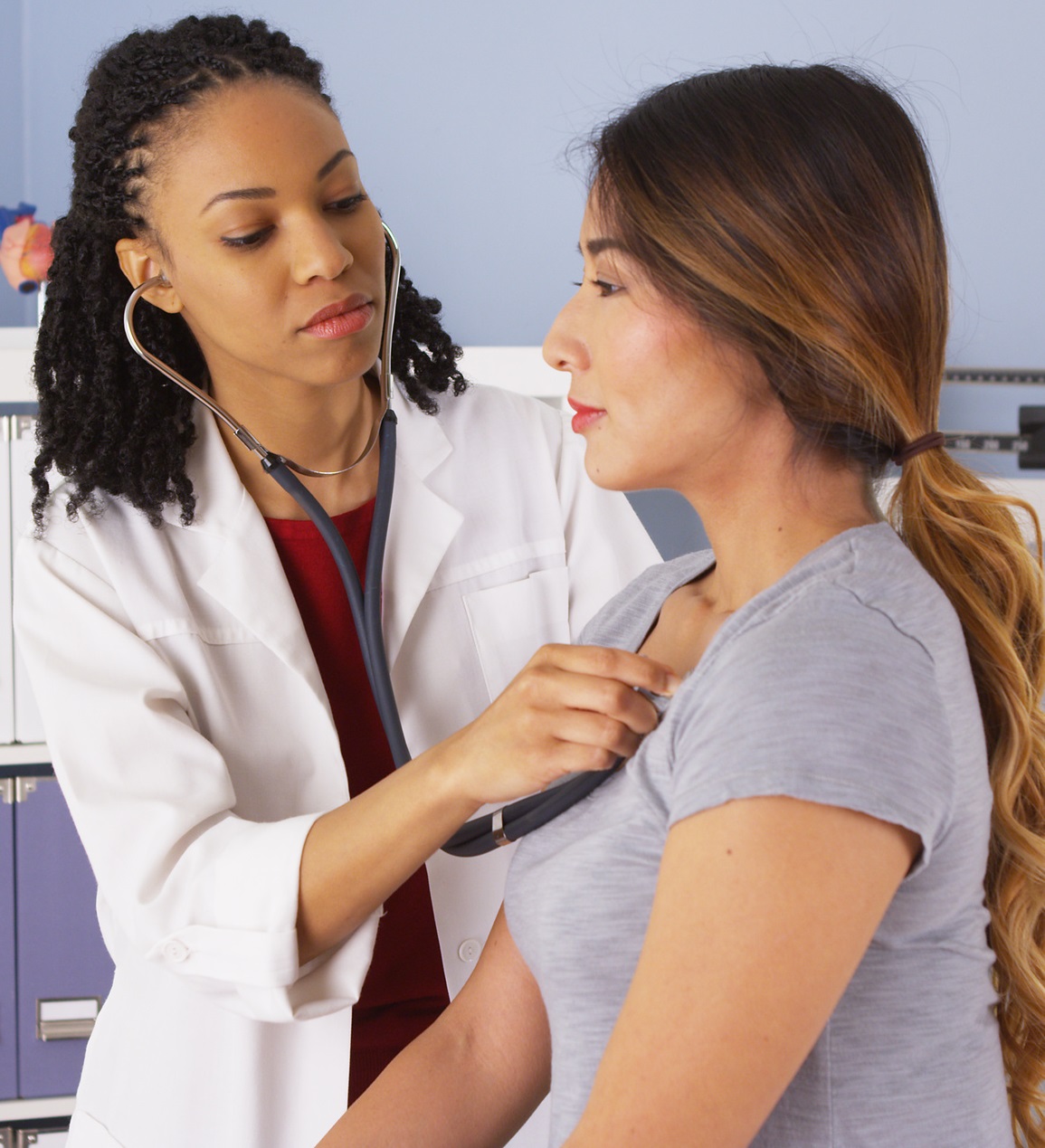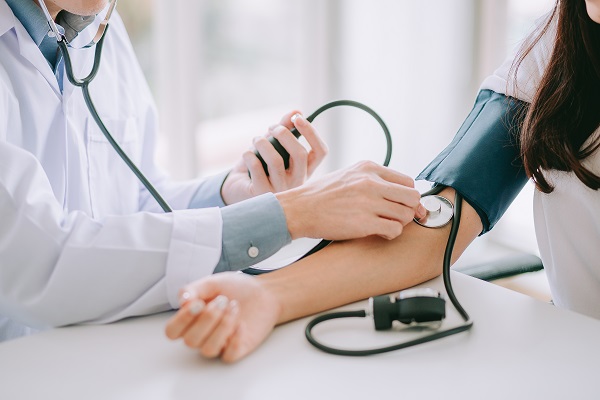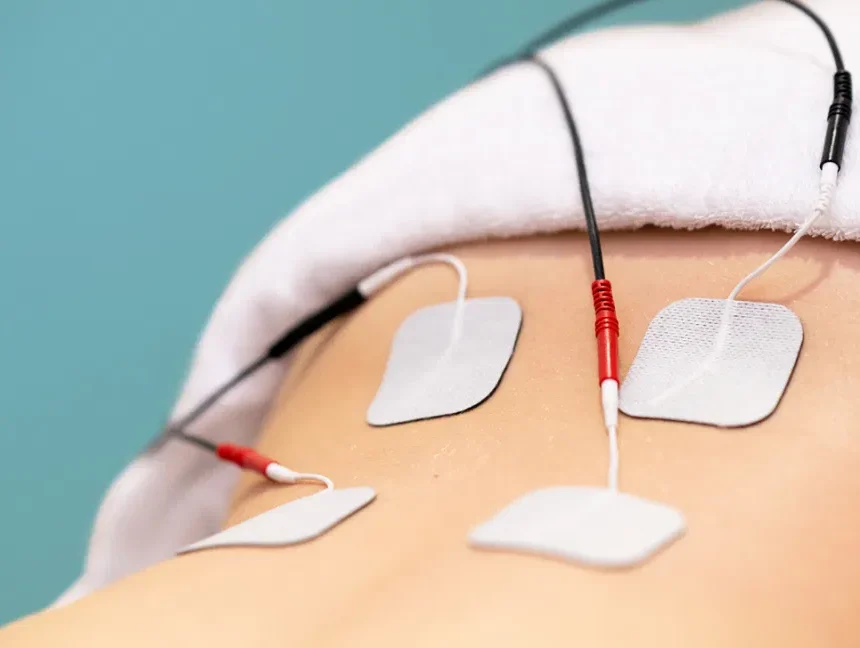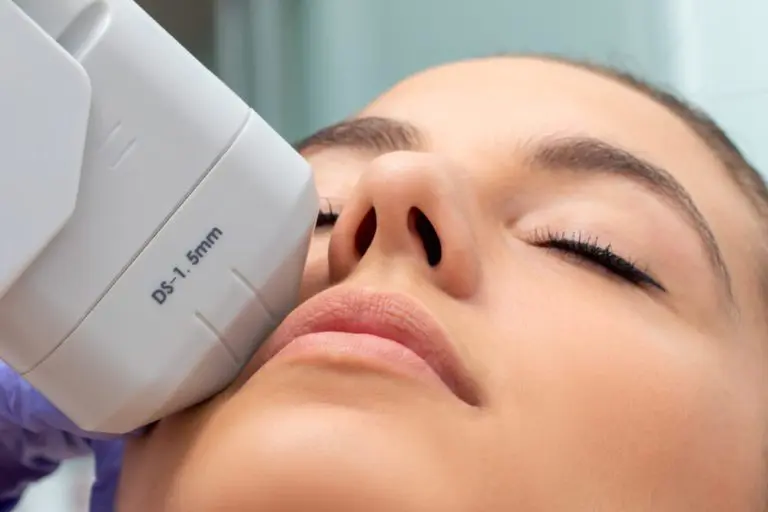Comprehensive Physical Examinations
Rama Care is here to emphasize on the importance of comprehensive physical examinations for early detection and effective management of health conditions. Learn what to expect during these thorough assessments and how they contribute to your overall health.

What Are The Components of a Comprehensive Physical Examination?
- Medical History Review: This is a crucial first step that includes a discussion of the patient’s past medical history, lifestyle, medications at present, and any complaints. It also includes family health history which anticipates hereditary predisposing health risks.
- Vital Signs Check: Essential is the nature of vital signs as they give basic parameters of the state of our health. This includes; blood pressure, pulse rate, respiratory rate, and temperature. Disparities in certain signs are also suggestive of diseases that need further diagnosis and therefore should not be ignored.
- Visual Exam: The doctor then looks at the skin, eyes, and how the body moves. Skin health is a way of getting clues about the general health of a person while the condition of the eyes may point towards hypertension or diabetes among other diseases.
- Visual Exam: The doctor then looks at the skin, eyes, and how the body moves. Skin health is a way of getting clues about the general health of a person while the condition of the eyes may point towards hypertension or diabetes among other diseases.
- Auscultation: By applying the stethoscope the doctor examines the heart rate, lung sounds, and bowel sounds. This can recognize abnormal rhythms in the heart, breath sounds that suggest disease, or bowel upset that for disease.
- Neurological Examination: 6 sensory, motor, reflexes, sensation, cerebral function, Muscle power, neurological response, reflex test, sensation, and thinking capability are the tests that are carried out to evaluate the functionality of the nervous system.
- Screening Tests: In addition to regular screenings, the patient may need such tests as mammography, colonoscopy, DEXA scans, etc depending on the age, sex, and medical and family history.
We Provided All Types Of General Physician services

Importance of Regular Physical Examinations
Physical check-ups for determining the health state are important for all age groups as they assist in the prevention of diseases.
Chronic health exams are a way of making sure that the body is fit and that diseases are diagnosed before they start showing symptoms; this is very essential for diseases such as cancer, diabetes, and heart diseases where early detection enhances the success of treatment.
They also help in identifying comorbid conditions and reviewing the vaccinations, risks for chronic illnesses, and lifestyle changes for better health status.
Also, a continuously existing relationship with a healthcare provider permits guidance and support concerning the further appendage and preservation of strength.
Make An Appointment

Does Rama Care Offer Comprehensive Physical Examinations
Rama Care is uniquely positioned to conduct routine and specialized physical exams that would meet all clients’ health requirements.
Rama Care Organization has adopted the concept of preventive care, with workers conducting a comprehensive check on the patients, which encapsulates anti-disease check-ups.
Employing the latest technology in diagnostics they have healthcare professionals who conduct examinations that are tailored to the needs of a specific individual a practice that acknowledges the health status of every person.
Furthermore, Rama Care also provides clients with subsequent support and well-being planning, which is also very critical for those who strive to maintain their health in the future.
Who Needs Comprehensive Physical Examinations?
While everyone can benefit from a comprehensive physical examination, certain groups should particularly consider regular check-ups:
Children and Adolescents:
Common well-in Babies should go for checkups to track the processes of physical growth and development. These examinations assist with the assessment of the development of such a child or teenager and a chance to update immunizations.
Adults at Increased Risk of Chronic Diseases:
Those with histories of chronic diseases in their families, including heart disease, diabetes, or cancer, should have to be checked often to deal with the signs and causes in time.
People with Known Health Conditions:
Those patients who have been previously diagnosed with certain diseases including hypertension or thyroid issues should go for frequent screening to assess their health status as well as the success rate of the continuing treatment.


Most healthy adults should get an annual physical, but depending on the age and overall health condition, the physical check-up should be done in every one to two years.
These comprise a blood pressure check, blood sugar and cholesterol level test, urinalysis, assessment of BMI and physical look, and eye check.
If blood tests are likely on the day of the exam, it is a good idea to fast for 8-12 hours beforehand; comfortable clothes are advisable as well as a list of current medications, recent tests, and medical issues.
It is always advisable to adhere to your doctor’s advice which may entail orders for additional investigations, sending you to a specialist, or institution of appropriate treatment based on the type and severity of the abnormality.
Technological developments like tremendously improved imaging examination, electronic health records, and video or Computerized tomographic microscopy in executing tests have expanded the efficacy, precision, and completeness of physical examinations to tackle and detect complications.
Hear From Our Clients
EXCELLENTTrustindex verifies that the original source of the review is Google. "I recently visited Rama Care Poly Clinic, and I had a very positive experience. The staff was friendly, professional, and attentive, making me feel comfortable from the moment I walked in. The doctors were knowledgeable and took the time to explain my treatment options thoroughly, which I really appreciated. The clinic was also clean and well-maintained, which added to the overall sense of care and professionalism. I would definitely recommend Rama Care Poly Clinic to anyone looking for quality healthcare services. Thank you to the team for a great experience!"Trustindex verifies that the original source of the review is Google. I had the best Treatment today for my Laser and pain-free and I also had my Ayurvedic Treatment. Thanks Rama Car for the services and taking good care..Trustindex verifies that the original source of the review is Google. All the staff was friendly, the are professional, Therapist know what is my concern, they know what is the next treatment I should do, they also advice for home care. My treatment was Ayurvedic massage and HydraFacial. All of them is amazing. They have many kind services . Place very easy to find. Thank you Rama care clinic, I will recommended . ❤Trustindex verifies that the original source of the review is Google. I was impressed with the service of the clinic. All the reception and therapists were lovely and kind. Sonita gave me advice on what I needed. She is knowledgeable and professional.Thank you so much. Recommend Rama Clinic.Trustindex verifies that the original source of the review is Google. Had an amazing session with the beauty therapist Mrs. Sonitha! I've seen noticeable improvements in my skin. She is incredibly skilled, dedicated, and attentive. And also , all the staffs are very friendly Be it doctors , therapists , receptionists- everyone out there give that ‘home’ feeling Highly recommend !Trustindex verifies that the original source of the review is Google. Very friendly staffs and therapist are very professional.Shout to Sonita for doing my facial very happy with the result. Definitely coming back to try there other treatments ❤️Trustindex verifies that the original source of the review is Google. "I had such a wonderful experience here! The staff is incredibly friendly and welcoming, making me feel right at home from the moment I walked in. The cozy environment adds to the overall relaxing vibe, perfect for unwinding. A special shoutout to Ate Sonita, who went above and beyond in taking care of me. She’s truly such a caring and thoughtful employee, ensuring that every detail was perfect. I highly recommend this place for anyone looking for excellent service and a warm, inviting atmosphere!"Trustindex verifies that the original source of the review is Google. Friendly and Professional Staff!! Love Dr Sadia!! Not only that, Ayurveda treatment I got was very good, reduced my shoulder and neck pain dramatically. Highly recommend!Trustindex verifies that the original source of the review is Google. I highly recommend Rama Care Polyclinic. I got the Dental, Ayurveda and Facial treatments and I am very satisfied with their services. High five to all the Doctors and staff as I had a pleasant and amazing experience with them.
Stay Updated With Our Latest News And Blog Articles
- By: admin
- June 4, 2024
- No Comments
Is Electrotherapy Safe During Pregnancy?
- By: admin
- June 4, 2024
- No Comments
Shockwave Therapy vs Electrotherapy
- By: admin
- June 10, 2024
- No Comments



